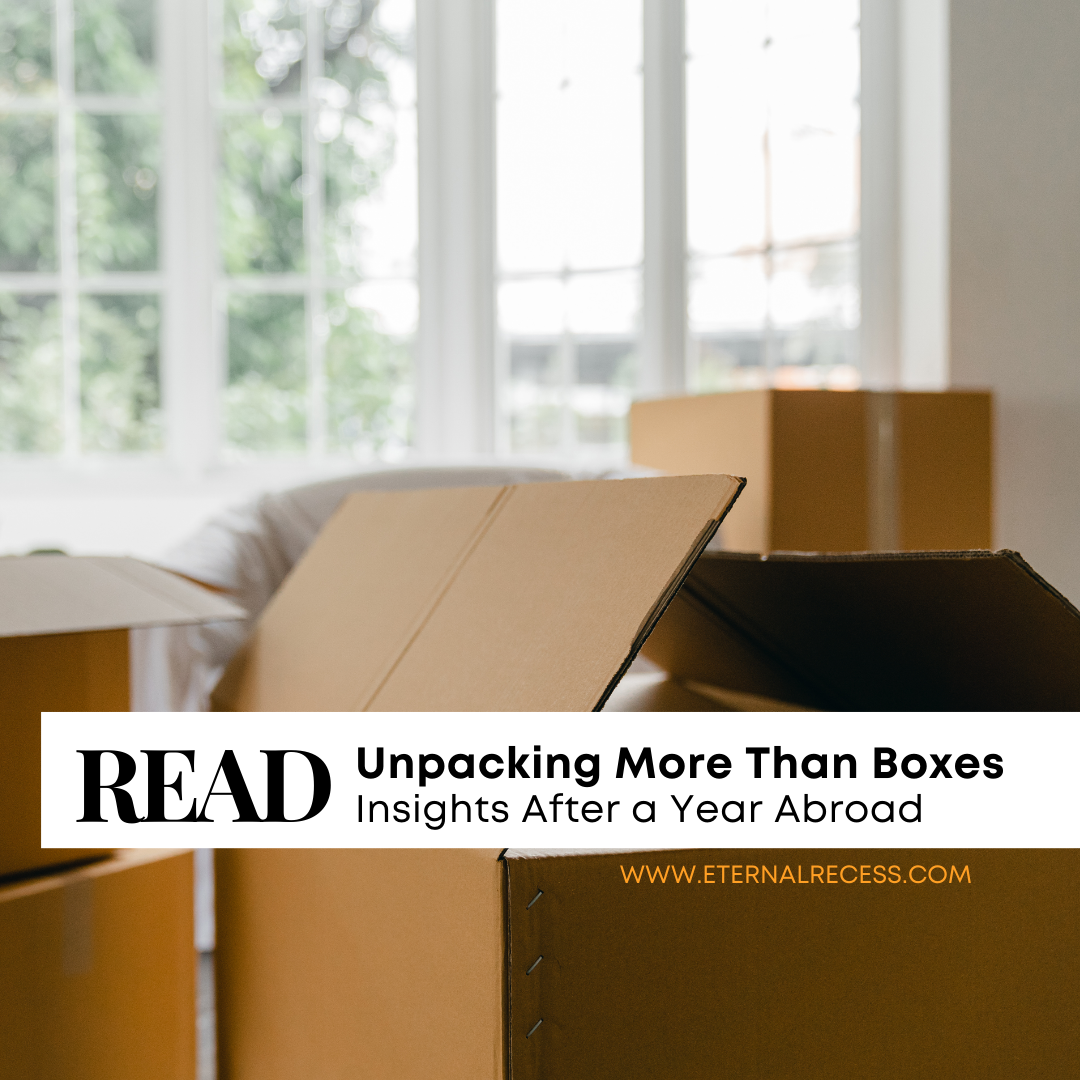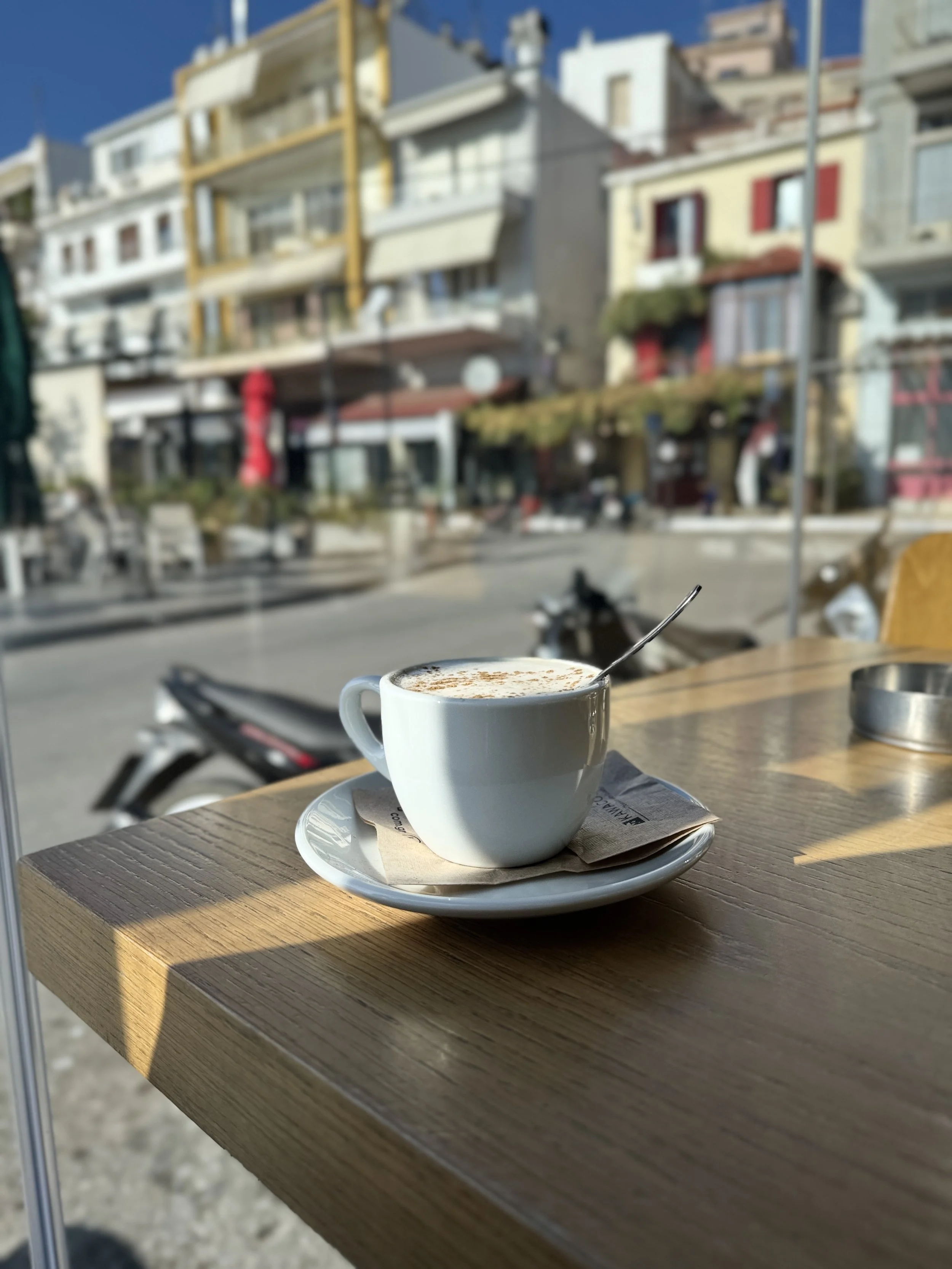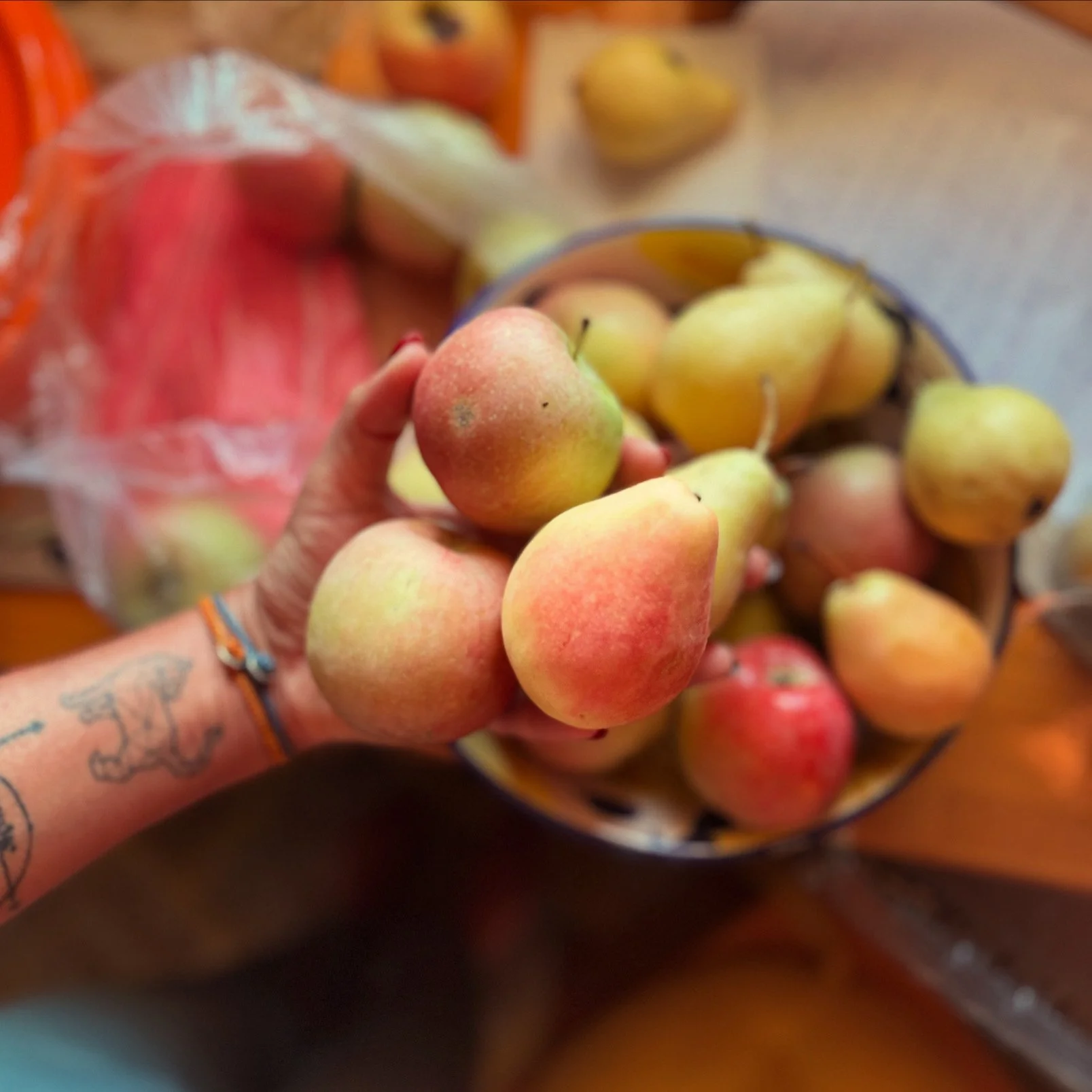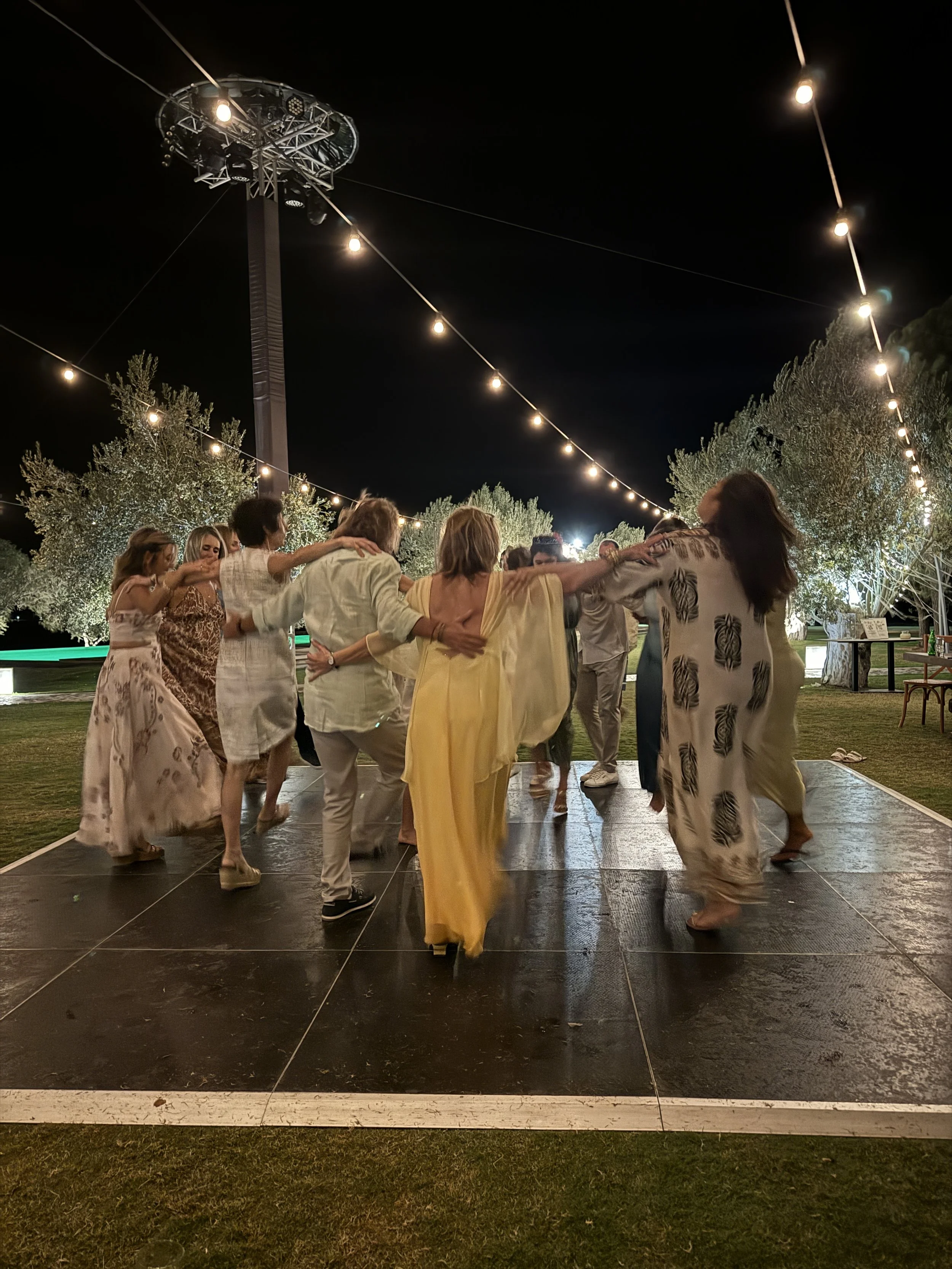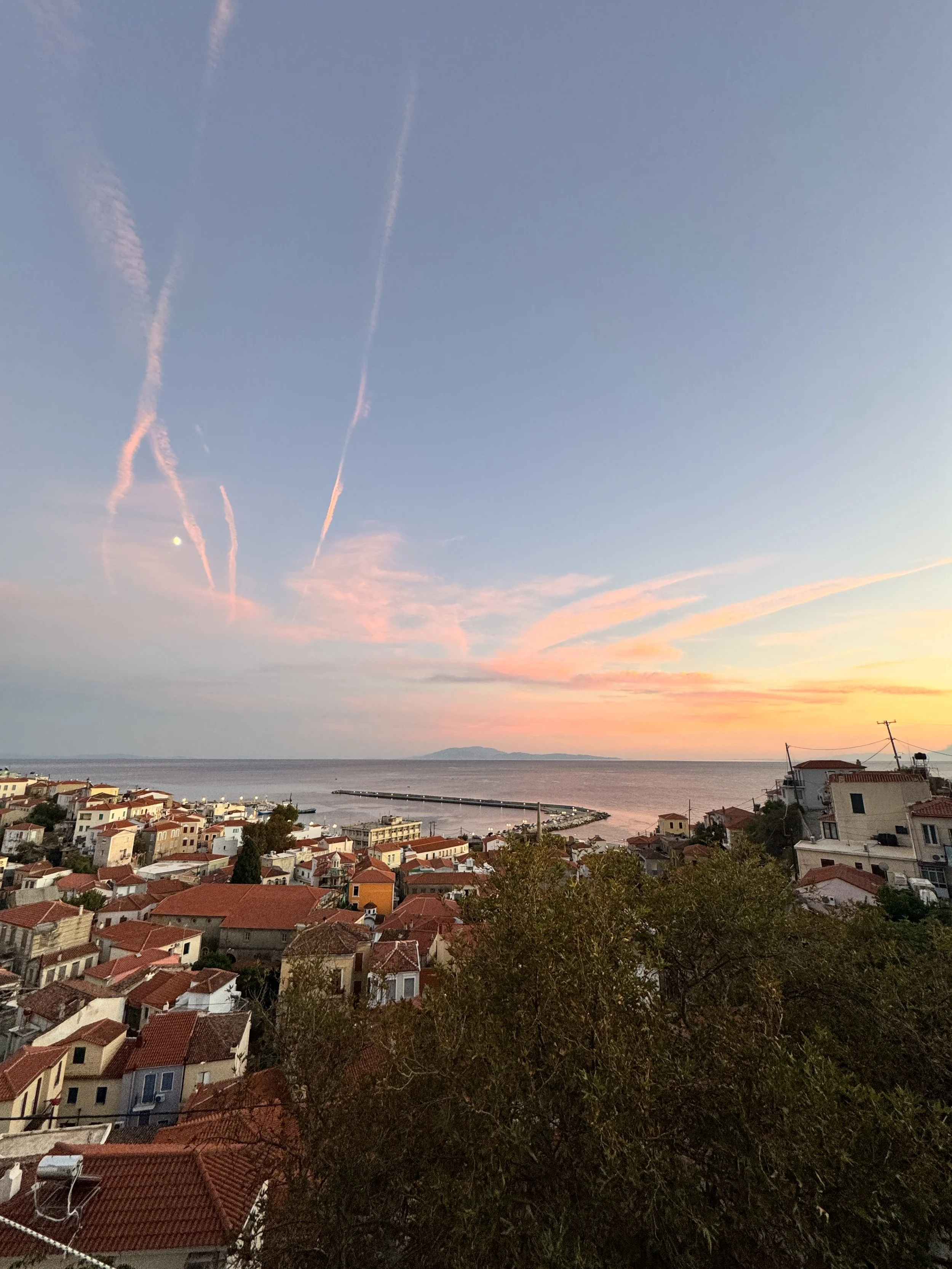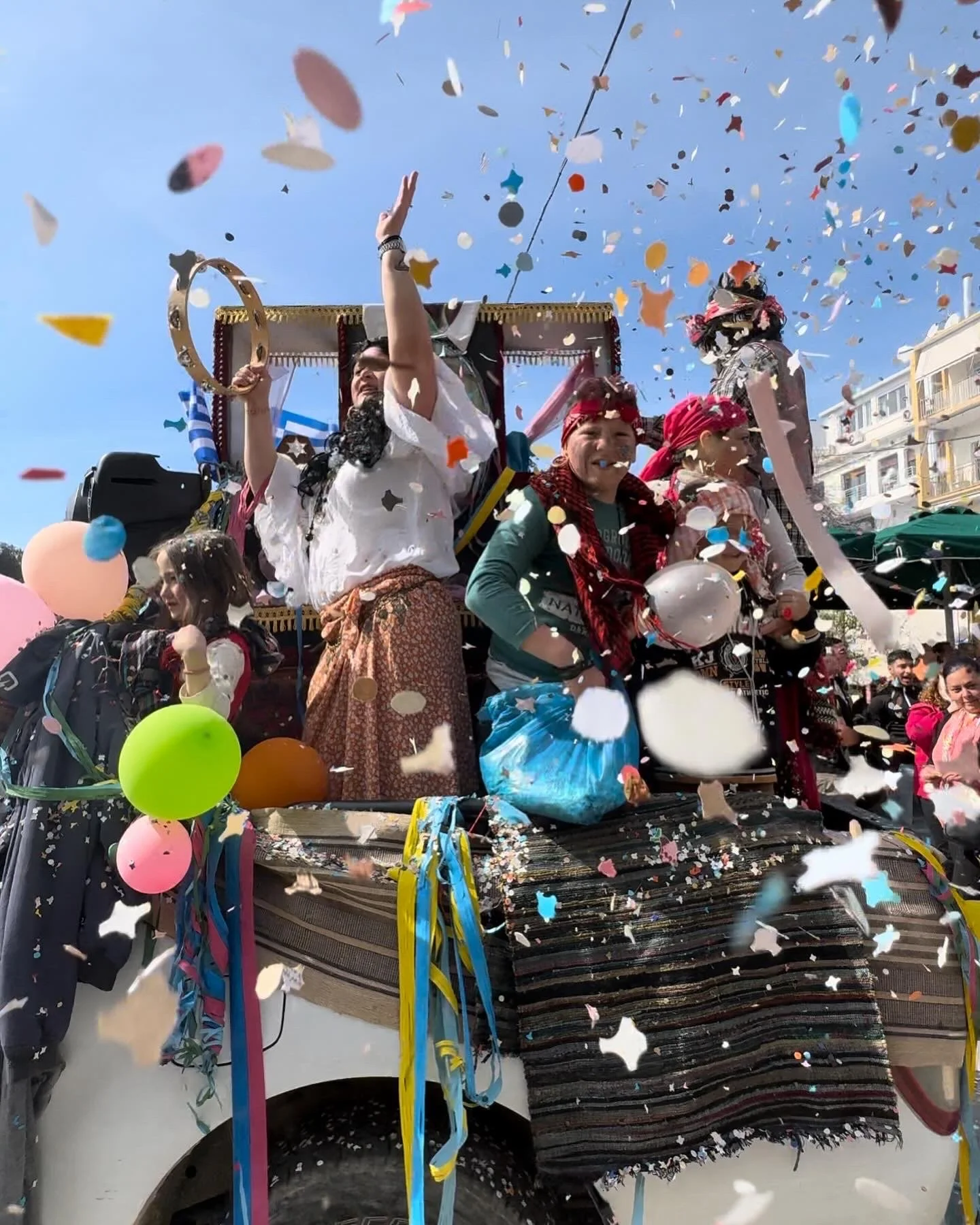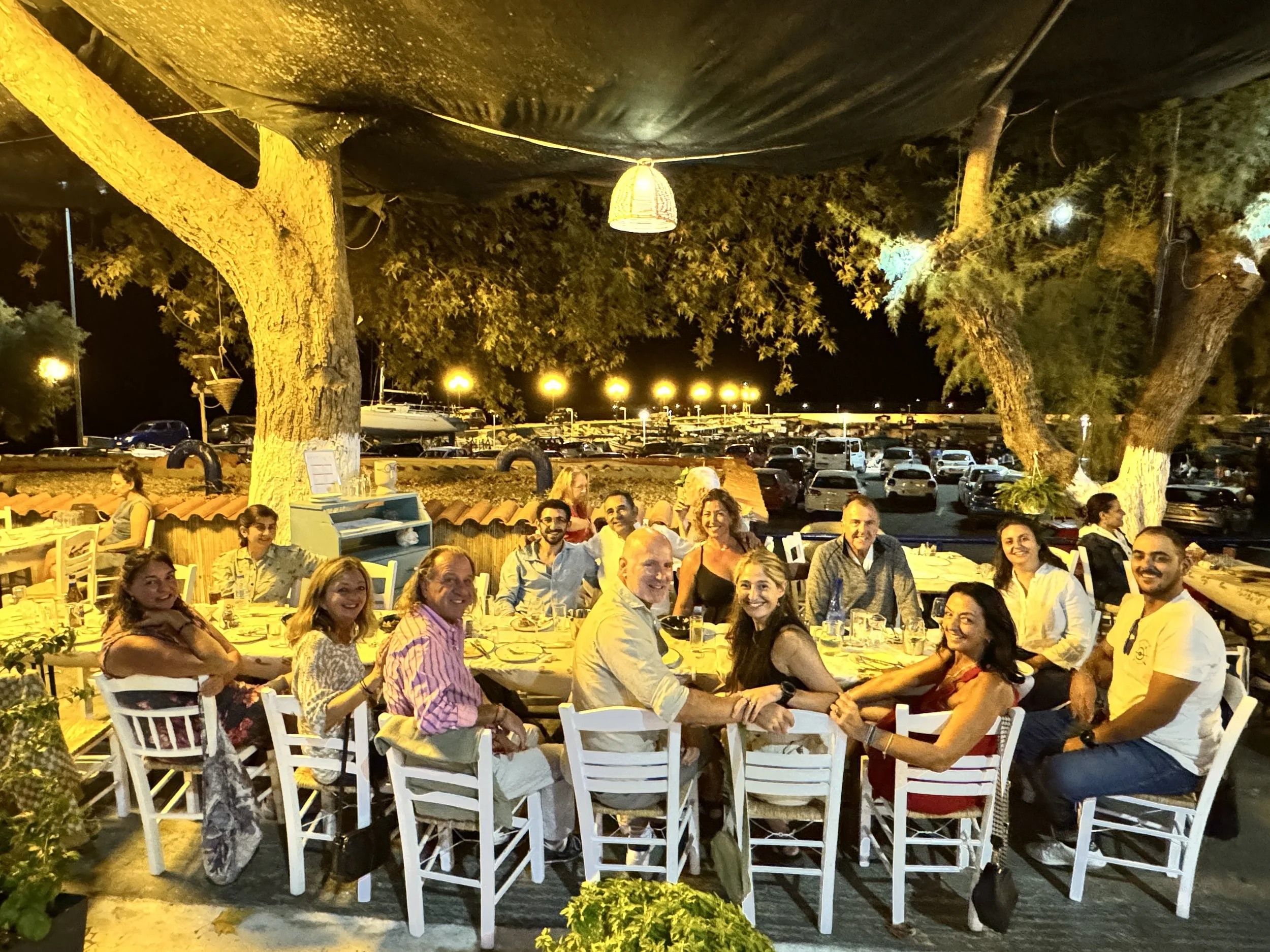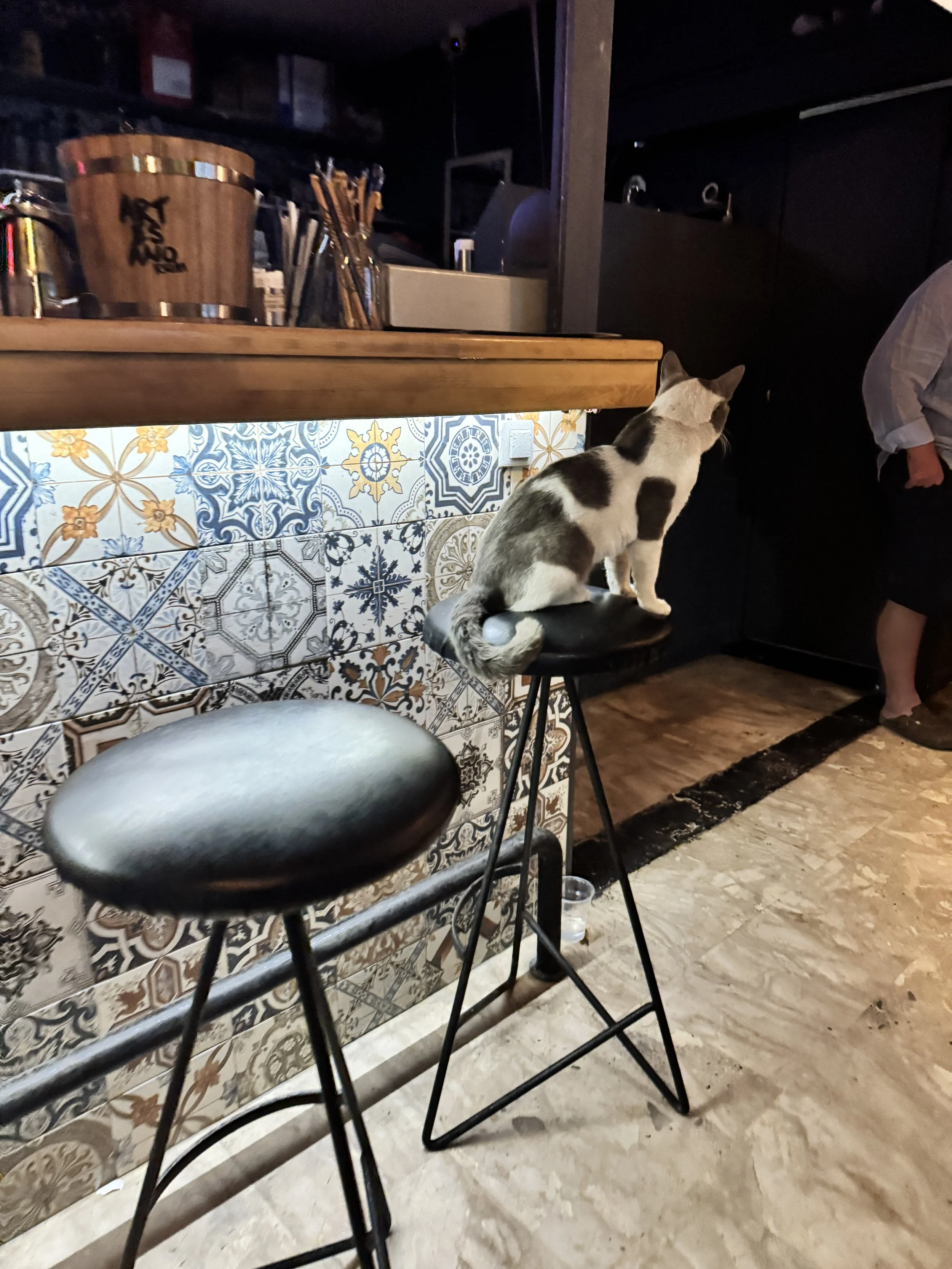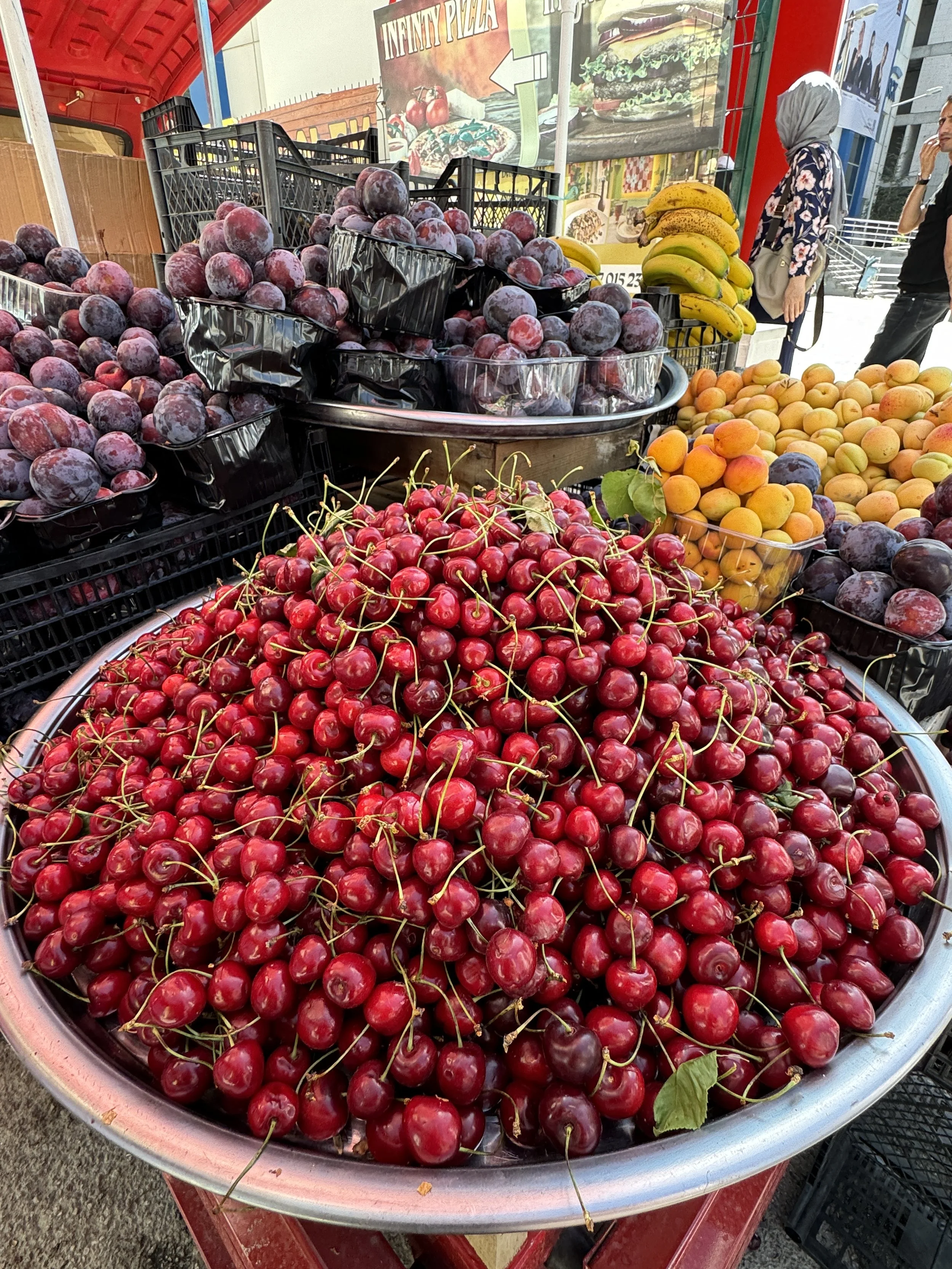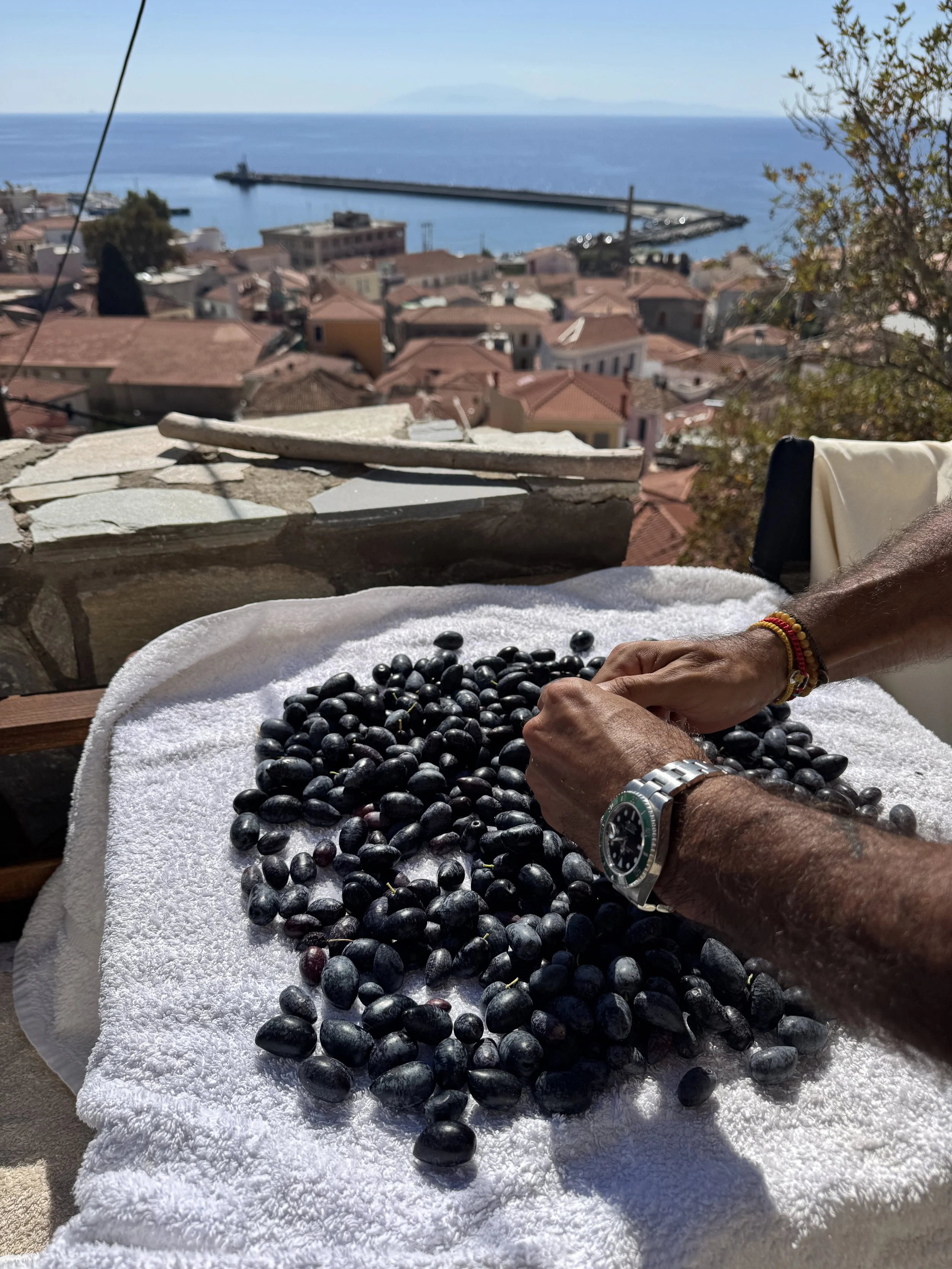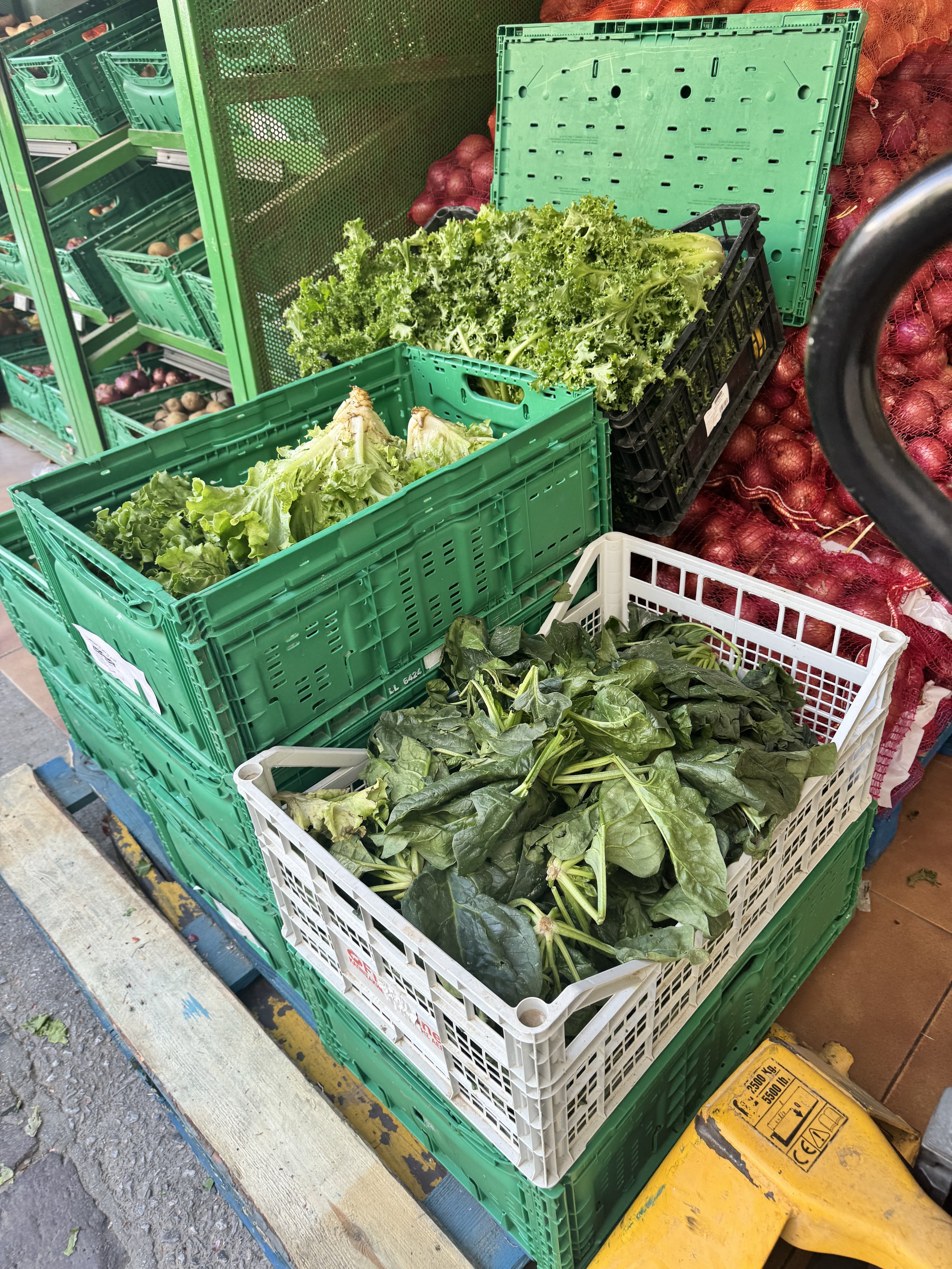Coming Back to the US
What Unpacking After a Year Abroad Feels Like
Disclaimer: The observations I share here are based on my personal experiences and the things that stood out to me. Travel provides an opportunity to see life from different angles and gather ideas for building a world where each of us can thrive. Every place has its own merits and challenges, and what works for me may not work for you. My reflections are often shaped by my sociology background, which is rooted in the pursuit of understanding and improving the way we live.
The past week has been a blur of unpacking the contents of my storage unit into our new part time US-based residence in Arizona. We left our seaside home on Lesvos mid-November and have had a lot of transit since then. We spent a week in Brooklyn which feels like ages ago! Then we headed to Arizona and split - Z up to Oregon to get our things moved down to AZ and me to CA to help my mom. I finally came back to Arizona and began to unpack the things we hadn’t seen in a year! Z is still recovering from his accident and I love unpacking so I’ve managed to whip through this unpack in a very solid week!
I’ve Been Unpacking More Than Boxes
Friends near and far have reached out asking how it’s going - how is life back in the States? Am I enjoying it? Do I like it? Do I miss Lesvos? And outside of the expected exhaustion from traveling backed up by unpacking, I have more inner turmoil than I expected. I knew coming back to the US for a longer time would be weird. Often when we travel, we are floating between short term rentals, hotels and friends/family homes. That has a level of fatigue in itself and for a number of reasons, we wanted to set up a part-time residence (check this post for why). So what’s it actually been like to be back in the States and to be reunited with my stuff? It’s been strange.
Before I left Lesvos I had coffee with a new friend (hi!). She actually grew up in the small village we live in on Lesvos and has relocated (most of the year) to New York. As we talked about our different upbringings and paths that led us to having coffee together on a Greek island, we had to laugh. Our experiences are flipped! The depth and meaning I have living in Lesvos matched the depth and meaning she found in moving to New York. It reminds me that while we are all living a shared human experience, we approach it from the unique sides of our experiences. It’s also a good reminder that there is beauty and merit to be found everywhere.
What’s Different
Water, Water, Everywhere!
After a dry late summer on the island, having endlessly flowing, drinkable tap water that can instantly be hot feels like a luxury. On Lesvos, we had days without water entirely—and no hot water was a frequent occurrence. Our drinking water had to be carried up from down in the village and when Z had his bike crash - cleaning his wounds required boiling water and a sponge bath. The convenience here feels almost magical.
Convenience
I can get anything delivered same day or next day to my doorstep for a small fee. Groceries, home goods, gifts, water, heck - you can even get wine or weed delivered within a few hours depending on the state you’re in. It’s a country of convenience and everything you need (and everything you don’t) is a mouse-click away. Want maximum ease? You can set your house up to have everything as automated as possible: at 6:00 am your alarm can go off, your window shades automatically open 45%, your coffee maker grinds the beans to make your cappuccino, your dog food feeder auto-unlocks and pours a measured amount for your dog, your sprinklers automatically water your decorative grass lawn, your home lights turn on to a low setting so you can ease into your day, your heater adjusts to the temperature you love and you can remotely start your car so it warms up before you get in to head off to work.
It’s astonishing, but it also makes me wonder: does the absence of struggle rob us of something essential?
Endless Variety
Step into a U.S. grocery store, and it’s overwhelming. A single cheese aisle offers hundreds of options—blocks, slices, grated, organic, vegan, lactose-free. Yet, most of these choices come from the same handful of corporations. This illusion of variety feels like a trick, offering slightly different versions of the same thing. The cereal, bread, and household goods aisles follow the same pattern: a luxurious display of choice masking a lack of true diversity. I can’t help but notice that almost everything is from somewhere very, very far away.
The Suburban Bubble
This ease and abundance should free up time for connection, right? But somehow, it’s the opposite. Walking to the store, I’m struck by how few people are outside. Cars dominate the landscape, often with just one person inside. Even at restaurants, families sit together but remain buried in their phones. Interactions feel rushed, efficient, and isolated.
It’s a stark contrast to the countries I’ve visited this year, where life is slower and connections feel more intentional. Chairs at cafes intentionally face outwards not towards each other so you can see who comes in, who walks by, you can call out to friends and invite them to sit. Here, there is no siga siga, there is no unplanned interaction or connection. I can relate to why people are so depressed and anxious.
The Verdict
The positives? Utilities and infrastructure here are unparalleled. Fast Wi-Fi, reliable water, and consistent heat are luxuries that make life easier. On the island, we often joke about “Wi-Fi pigeons” dropping the signal mid-flight. The trade-off, of course, is the Aegean view—a reminder that beauty can compensate for inconvenience.
Yet, I can’t shake the unease. All this comfort, convenience, and choice should give us more time and happiness, but it often doesn’t. Everything has trade-offs and nothing comes without a price. Depression and anxiety are on the rise, with 21% of American adults reporting symptoms in 2022 and 18% reporting anxiety. It feels like we’ve taken the time we’ve saved and filled it with scrolling, shopping, and seeking short-term rewards.
To compensate, many of us try mimicking the work/reward cycles of a harder life—training for marathons, using our hands to make things, or setting elaborate fitness goals. But those cycles once came naturally through daily survival: fishing, farming, cooking, and building. Without that, we’re left searching for ways to satisfy our human need for meaningful effort and coming up woefully short.
The Illusion of Luxury
Working in the food industry taught me how much of what we see is just clever marketing. Five products are repackaged into 15 versions to ensure you buy one. This focus on quantity over quality extends beyond food to fast fashion, bulk goods, and more. We’re encouraged to believe that more is better, but it often feels empty. Most folks who spend a month abroad almost anywhere and return to the USA will remark on how empty the food tastes. Everything has been grown, harvested, packed and trucked from far away and in order to hit the price point consumers will pay and get it in the volume they need and the format (god forbid you have to gut a fish!) - quality is sacrificed. Extrapolate that out to all other items and you get a feeling for how this faux luxury exists - Temu, fast fashion, bulk groceries that require bigger houses and refrigerators to store the excess goods, etc… We’ve compounded more time with more choices - we’re supposed to feel this luxury of choice but underneath it feels like a trick. Do you need so many choices or are you getting lost in them? Are they hiding lack of value with excessive decisions?
And then there’s community—or the lack of it. On the island, a neighbor loaning you a battery charger for your moped isn’t just practical; it’s an opportunity for you two to connect and talk. Here, that interaction might devolve into a competition over who owns the better charger. I’ve been in our new house for almost two weeks now, and not a single neighbor has said hello! The culture of America is rooted in people who wanted to come here to start a new life - often abandoning long family ties and old ways. That independence coupled with the competitive nature of capitalism develops unchecked into a place where every person is competing at all times against everyone and everything else.
The culture glorifies excessive wealth and shuns discovering what is actually enough. You have a car? Why not have two. You could have a better car! If you worked harder, you could have a bigger house, a better house, a better neighborhood, a vacation house, on and on. There is no end. Granted by the end of 2020, my then-husband and I had three cars (for two people) and were living in a 6-bedroom 3500 square foot house with a three-car garage. What? Granted the house was meant as an investment to sell (and it was a good one), but the sheer insanity of that much space for two people was…insane. Worse? We had to fill it with furniture, stuff, more things to buy. It was a breaking point in so many ways. Not only is the sheer hoarding mindset of more-more-more insane, but it means others have less-less-less.
In Summary
Travel reveals these contrasts. This year living on a Greek island and traveling in Türkiye, France, Belgium, the Netherlands and Italy has shown me the value of intentional living. This isn’t to say all communities in the U.S. are this way, but the overarching patterns are hard to ignore.
America lacks a long-standing cohesive cultural history - we are a melting pot, which is a beautiful thing in itself. But that lack of a cohesive culture means it is easy for that culture to be constructed for us much to the benefit or corporate America. There’s a reason people in our little island village live for so long. They walk, they eat real food, they interact all day long, they go to church and sing together, they have a ton of holidays where they all connect as a village, their families get together and cook, they dance a lot.
I watch as women well into their eighties walk carefully down the very steep hills and stairs from where we live to the church every single Sunday and every single of the many Greek Orthodox holidays. They are sharply dressed in their finest skirt suits, pantyhose, leather shoes with a low heel, hair fixed, makeup applied, purse tucked into their elbows and they walk down. They walk up. They banter and talk and gossip. I smile and say hello, and think this, this is how you live a long and happy life.
Building a More Conscious Culture
What can we do? Start small. Here are a few ideas:
Fill your time with meaningful, intentional activities.
Rediscover slower, rewarding processes like cooking or gardening.
Seek healthy ways to satisfy work/reward needs, like setting goals or taking up new hobbies.
Be mindful of what’s enough for you—stop chasing more.
Focus on building and nurturing community.
I have heard so many friends remark here (especially during the holidays) about how many things they are doing that they do not like and do not bring them joy at a high speed (packed schedules) and they are finding no satisfaction and it’s costing them a fortune. There is a better way, it does take work, and I promise it is worth trying. Our world is what we make of it, and so is our time. Let’s slow down and spend it on what truly matters.

